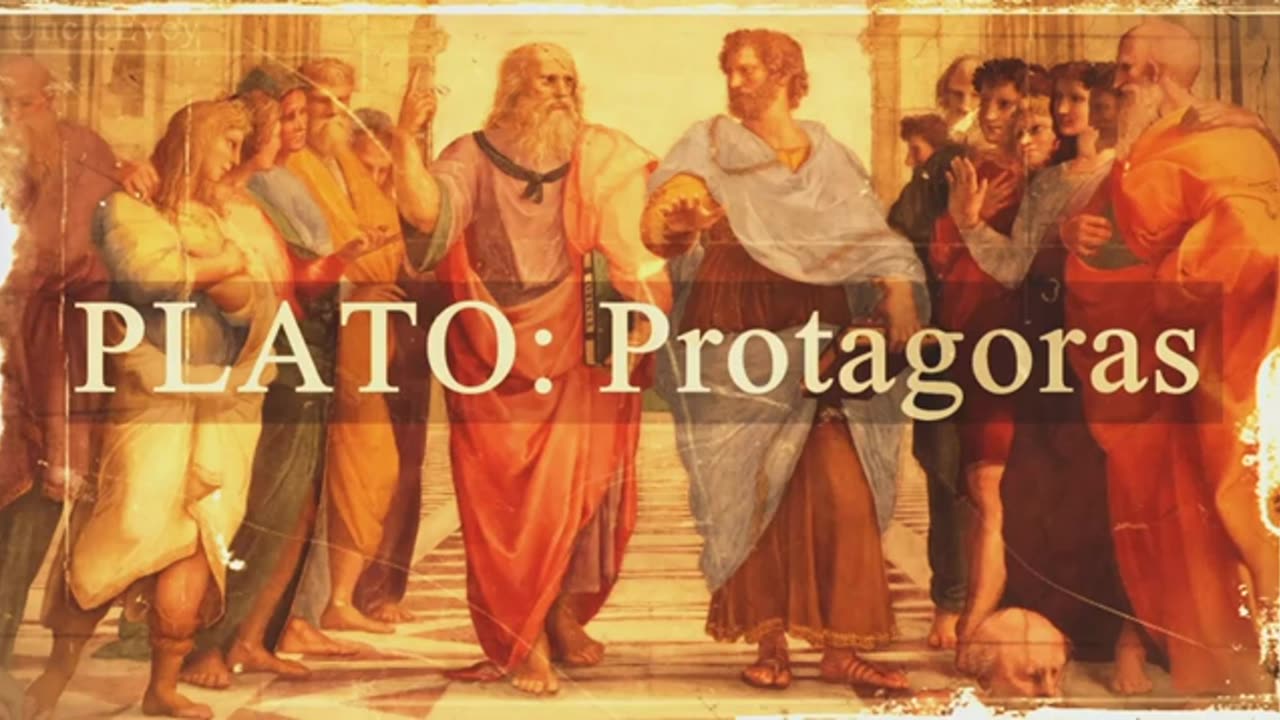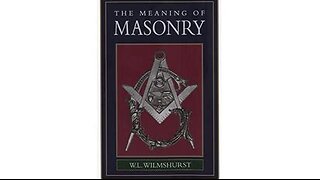Premium Only Content

Protagoras by: Plato
Protagoras is one of Plato’s early dialogues, centering on a spirited and intellectually rich debate between Socrates and the famous sophist Protagoras. The core question? Whether virtue can be taught.
Set in a lavish Athenian house packed with young intellectuals and powerful figures, the dialogue showcases Socrates interrogating Protagoras' claim that he can teach virtue - a claim central to the Sophist movement. What unfolds is not just a clash of personalities, but a deep philosophical dissection of ethics, education, rhetoric, and the nature of human excellence.
Socrates, always probing, challenges the idea that virtue is a set of teachable skills like math or music. Protagoras, representing the Sophists, argues for a structured, teachable view of virtue grounded in cultural refinement and civic responsibility. The conversation swerves into mythology, poetry (particularly a sharp analysis of a poem by Simonides), and logic games as both men try to outmaneuver the other in both reason and style.
Why it Matters:
This dialogue is one of the earliest and clearest showdowns between philosophy and sophistry, truth-seeking vs. persuasive performance. It reveals early Greek ideas about moral relativism, education, and the role of the individual in society. It’s also one of the best texts for seeing Socratic irony in action, as Plato paints Socrates as both humble and intellectually lethal.
About the Author:
Plato (c. 427–347 BCE) was a foundational figure in Western philosophy and a student of Socrates. Born into an aristocratic Athenian family, he lived during the chaotic years following the Peloponnesian War and witnessed firsthand the political instability and moral decline of his city-state - an experience that deeply shaped his work.
Plato founded the Academy in Athens, one of the first institutions of higher learning in the Western world. Through his dialogues, he preserved and expanded the teachings of Socrates while also laying the groundwork for metaphysics, ethics, epistemology, and political theory. His writing style... dramatic, poetic, and rich in symbolism - allowed complex philosophical ideas to be expressed through dynamic character interactions rather than dry exposition.
Plato’s influence is immeasurable: he was the teacher of Aristotle, the intellectual ancestor of countless Western thinkers, and a cornerstone of esoteric and mystical traditions. Some later interpretations, particularly within Neoplatonism and Renaissance Hermeticism, viewed Plato not just as a philosopher, but as a conduit of divine wisdom - his “world of forms” echoing ancient mystical teachings about ideal archetypes and eternal truths.
Whether approached as a rational philosopher or a mystical sage, Plato remains one of the most powerful voices in the history of thought, challenging readers to question, reflect, and seek the higher good.
-
 5:55:03
5:55:03
Deus Meum Que Jus
5 days agoThe Meaning of Masonry by W.L. Wilmshurst
4712 -
 LIVE
LIVE
SynthTrax & DJ Cheezus Livestreams
23 hours agoFriday Night Synthwave 80s 90s Electronica and more DJ MIX Livestream CARTOONS / RUMBLERS APPRECIATION Edition
105 watching -
 LIVE
LIVE
DeadMomAlive
2 hours agoLets dodge, duck, dip, dive, and dodge to catch LEAPERS & kill ARC's! !PREMIUM CREATOR!
59 watching -
 LIVE
LIVE
BubbaSZN
6 hours ago🔴 LIVE - 2 TOURNEYS IN 1 DAY (RANKED CUP & SKIN CUP)
38 watching -
 45:56
45:56
MattMorseTV
1 hour ago🔴Trump just GAVE the ORDER.🔴
2.28K6 -
 LIVE
LIVE
SOLTEKGG
44 minutes ago🔴LIVE - NEW GAME: Black Budget - !pc
25 watching -
 2:01
2:01
MetatronCore
21 hours agoUK Veteran Leaves everyone speechless WE SHOULD LISTEN
189 -
 3:47:41
3:47:41
Nerdrotic
5 hours ago $9.56 earnedSupergirl WHATEVER | Superhero Fatigue | Hollywood DISRUPTED - Friday Night Tights 384
86.2K16 -
 2:18:56
2:18:56
Nikko Ortiz
3 hours agoFighting War On The Beaches... | Rumble LIVE
4.18K -
 58:53
58:53
BonginoReport
4 hours agoEverybody Hates Gavin - Nightly Scroll w/ Hayley Caronia (Ep.196) - 12/12/2025
91.7K33